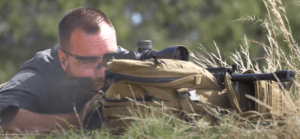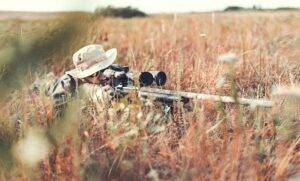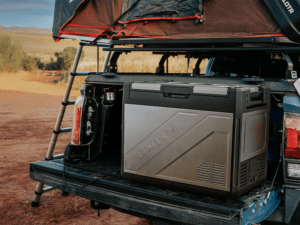

In most locations, it can be a rather lengthy process to secure a firearm and have a license for it. If you’re reading this article you’re probably new to guns, or you’re thinking about getting one and want to know the dos and don’ts in terms of maintenance. Many circumstances can cause you to unintentionally wreak havoc on your weapon.
Perhaps you were at the firing range and used dirty ammo, forgot to clean the weapon after a long day, and discovered it no longer shoots. Most guns malfunction or break because of laziness and ignorance, as opposed to normal wear and tear. Make sure to wear night vision gear when hunting or shooting at night, OuterOptics can help you make up your decision.
The solution would, therefore, be to know the common problems associated with basic firearm care and the proposed answers.
Wear and Tear
Like most things, guns will eventually wear out, although with innovations in the weapons industry they are getting increasingly durable and resistant to all sorts of elements. The most common part that is likely to wear out would be springs. As a gun owner, you should accept that you will have to replace a spring and consistently check that your current one is functioning. Firearms also have many moving parts and thus cleaning and lubrication are vital for upkeep.
Cheap Parts
So you’ve found out that your gun may need a replacement part and you’re on a budget. You might have already spent a lot of money on the weapon itself and you’re looking for a quick and easy, possibly “cheaper’ fix. But with firearms comes the responsibility of knowing that they cost money. Therefore, anything you install on your gun needs to be researched and have a good track record before you buy it.
Springs, bolt carriers, trigger packs and magazine catches should all be tested and reliable. Internal parts being most important, as you wouldn’t want your gun to fail you in an emergency situation just because you saved a few dollars on a cheaper alternative. Guns are a serious thing, and we can presume in emergencies they can be used in a life or death situation.
You shouldn’t risk your life in order to save some money on inferior parts.
Installation of parts

You’ve found good trustworthy parts and you’re ready to alter or fix your weapon. All of this means nothing if the person who is installing these parts doesn’t know what they’re doing. Therefore, don’t let anyone “fix” your gun, make sure the person knows exactly what they’re doing and has experience.
This might include you, put pride aside and let someone knowledgeable tend to your weapon. Guns can be exciting and fun to learn about. Nobody is an expert right away, and when starting out someone should show you the ins and outs of the installation process when fixing.
As a general tip try to avoid performing fixes based upon YouTube videos at the start. Gain actual experience by seeing the job done in person so you gain that practical experience before attempting your own handiwork.
Internal rust
Most people will start to notice rust on the outside of their weapon before they notice the inside. But by the time you notice it is often far too late. Internal pitting on chambers is a death sentence for your firearm. Avoid the harsh reality by always lubricating your gun with oil.
Too much oil
As previously mentioned a gun should be oiled to prevent rust and breakage. I’m also sure you’ve heard of the expression: ‘too much of a good thing is bad.’ Maybe you’re the type who reasons that better be safe than sorry. Oil and lubrication are important to keep your weapon firing smooth.
However, too much of it can attract lint and other debris. Over lubrication can be as detrimental as no lubrication, as small particles or even sand can get stuck in your gun causing it to bottleneck. Therefore consideration of possible oil flooding is needed when performing general maintenance.
Solvents
The purpose of solvents is to remove carbon, lead and other residues from the bore of the weapon. You will likely be eager to give your gun a good cleaning to keep it clear of any substances. When using solvents be weary to use a patch or two for the barrel. If the solvent gets into hard to reach places and is left there, it may start corroding the actual weapon.
A pattern should be emerging from excess oil and solvent that you should always measure and be diligent in the number of liquids you put into your gun.
Storage
When you’re not actively using the gun it should be stored away safely. Often guns tend to rust and erode because people have placed them in an environment with rather hazardous elements to their wellbeing. Most gun owners keep their guns stored safely in cases. However, others have bigger arsenals and have them displayed in an open room.
If it is a humid day or the room that stores the firearm is prone to moisture, you will soon find out the guns will begin to degrade in a few days. Weapons should always be dried out and clear of any moisture before being stored away if their surface is prone to rust.

Transportation
When going to another state or heading to the firing range it is important to safely transport your firearm. It is well known that airport staff does not treat luggage well and a protective case can be vital to secure no damage. A padded case that safely secures and prevents the insides from clashing together can save your weapon.
For longer firearms such as rifles, it is also advised not to rest the muzzle on the floor. You may think nothing of quickly put it next to your passenger seat on the way to the firing range, but the smallest chip at the end of the barrel can ruin your gun.
Sometimes expensive carry cases aren’t necessary for short trips, but a cheaper carry bag placed in a proper position can be just as effective.
Tightening
When screwing down a bolt or any retainer don’t tighten it too much. To start, look at what the manufacturer says, and if no instructions are included, hand tight, then a quarter turn. If you tighten your firearm too much it could cause havoc to additional parts and damage the very part you have replaced in the process.
General Gun Care and Final Thoughts
After reading this guide we can say that there are three categories that most people fall into when failing to care for their weapon.
- Lack of knowledge: Most of us get very excited when we get our first firearm, we’re grown up seeing them in movies and presume they’re straightforward. But the devil is in the details, and small mistakes can lead to even bigger problems. Do a lot of research before you handle your weapon, read about the weapon model and proper care techniques. Find out what solvents and oils work best. Make sure your cleaning tools like steel brushes don’t damage the barrel, or your cleaning methods don’t leave the gun moist and prone to rust. Avoid these hassles and extra financial burdens by educating yourself. Guns are a learning process, but there is no excuse for gross negligence.
- Be prepared to pay for maintenance: As previously stated cleaning and upkeep can cost some money. But be ready to pay for other things at the start of your firearm ownership, such as paying someone to fix your weapon. Cases, carrying bags and storage may also incur some costs to make sure it is well looked after when not in use. Finally, what you put onto your gun and inside will affect performance. Cheap dirty ammo or unreliable 3rd party parts can end up costing you more than the proper equipment would have in the first place.
- Put your pride aside: Everyone starts as a beginner, nobody is a natural with a foreign object. In the beginning stages, there’s nothing wrong with asking for help or paying for it. As you gain more experience with your firearm it will likely become cheaper to maintain as you can do most things yourself. But for the initial stages be sure to gain knowledge and experience before leaving your weapon to chance. Nobody wants to be told they don’t know how to take care of their own property, but we can only do this correctly by learning from trusted and proven methods. Guns give the owner a lot of power and responsibility, but this should come with humility and a willingness to treat them respectfully.









